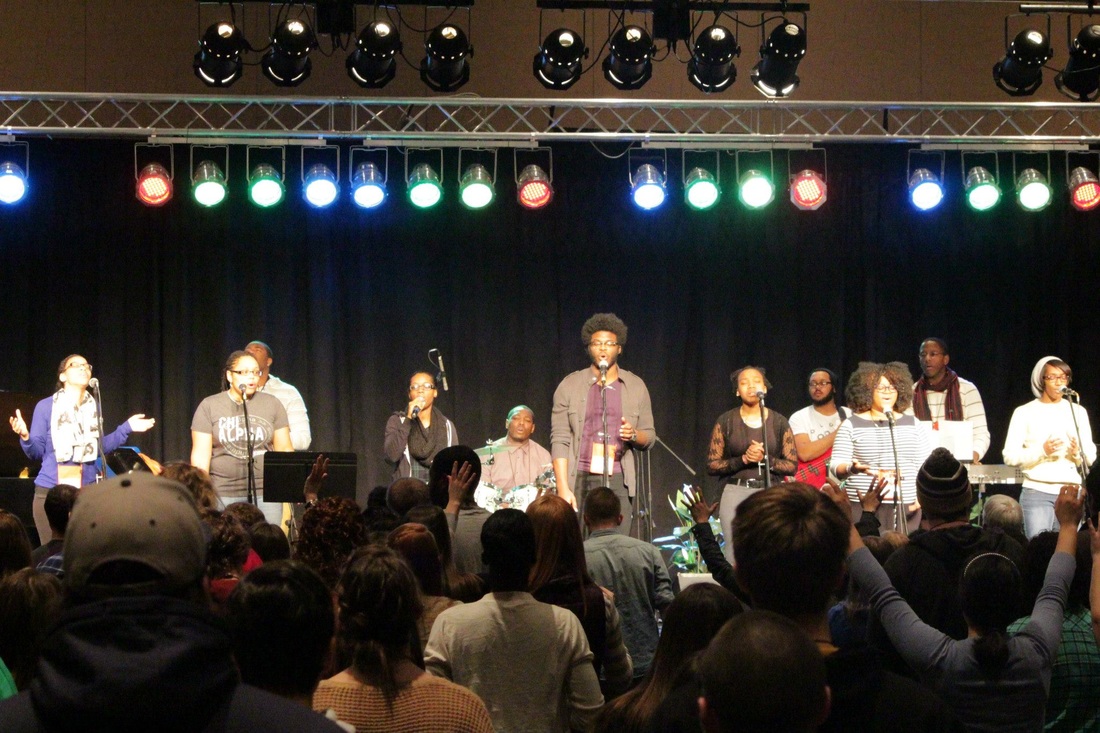 There seems to be no more divisive issue, at least in the initial stages of diversity development, than music style in your congregational worship service. How do you meet the needs of everyone you are trying to reach and create the kind of cultural experience that is appropriate to all? Well, first let me say that you need to be asking the above question. If you have not, then your goal may not be diversity but a diverse group of people attending a mono-cultural congregation. Now if true Biblical diversity is your goal, then you need to process some cultural, sociological, spiritual, and practical issues. First thing we need to realize is that different cultures have different ways of connecting with God. There are different histories, different journeys. What it boils down to is that people have different comfort zones when it comes to connecting with God. Can a Spanish believer worship God in English? Sure, (if they speak English). But it can sometimes feel like walking around in someone else’s shoes. Making the effort to give attendees something they feel comfortable “putting on” communicates value, respect and hospitality. Sociologically speaking, minorities are used to adapting themselves to the majority culture. Majority people rarely, if ever, are asked to make such adaptations. The truth is that most everything in our society caters to the majority person. In a campus experience, classes, dorm life, and even cafeteria food targets the majority population. While minorities are aware of this fact, majority members don’t notice it. For them this is simply the “way things are.” It is the status quo. Due to these sociological realities, making changes in your music styles to create a more broadly accessible congregational experience will produce two simultaneous results. While minority people will feel more at home and, hopefully, appreciate the effort at hospitality; majority people will most likely, perhaps for the first time in their lives, begin to feel uncomfortable. Reactions may range from annoyance to anger. Having become accustomed to always having things as they desire, some may even feel that their needs are being “completely overlooked and ignored” and that everything now is for “them”. The solution to this apparent lose-lose situation is the gospel. One the surface it may appear that building a multi-ethnic congregation means no one gets what they want; how much easier to have a homogeneous group and keep everyone happy. Even if God would be happy with us segregating ourselves into our own groups to satisfy our preferences and desires, it simply won’t do. We are called to be a church of everyone nation, tribe, people, and language. And while asking everyone to die to self and prefer their brother and sister over themselves may be anathema to our American culture, it is right at home in the kingdom of God. So what at first seemed like a lose-lose, turns out to be a win-win where everyone gets to practice the gospel in true Christian community. Now- please don’t tackle these issues in secret. Deal with them up front. Teach through scriptures like Phillippians 2, John 17, and Romans 12:10 to challenge your people to true discipleship. Don’t just make changes and hope for the best. Teach, preach, inspire, encourage, rebuke when needed, guide, and lead your people into a true kingdom manifestation of Body life. Oh, and don’t forget to pray. The battle is not just against sociological and cultural realities, but against powers in high places and strongholds that are not broken except by truth and prayer. Finally, there are practical considerations. You may want to make changes to your music style, but simply do not currently have the resources to do so. This is the place most of us start. You can begin by incorporating recorded music wherever doing so is appropriate, before and after service or during a special tims. This is good. But here is the thing, you can start here, but can’t stay here. What do you do? Pray, ask, pray, and ask. Get your whole group praying. Pray at your meeting. “You know part of our vision for our group/congregation is to be fully diverse, not just in the people that attend, but in our culture too. In order to do this, we need a variety of music styles as part of our services. But right now we don’t have the people do to so. Let’s pray that God provides what we need to make changes.” Public prayers like this serve many, many purposes. In the end it’s your commitment to a full, Biblical expression to Christian community that will overcome all cultural, sociological, and practical obstacles. Comments are closed.
|
Categories
All
Contributing Authors
|

 RSS Feed
RSS Feed